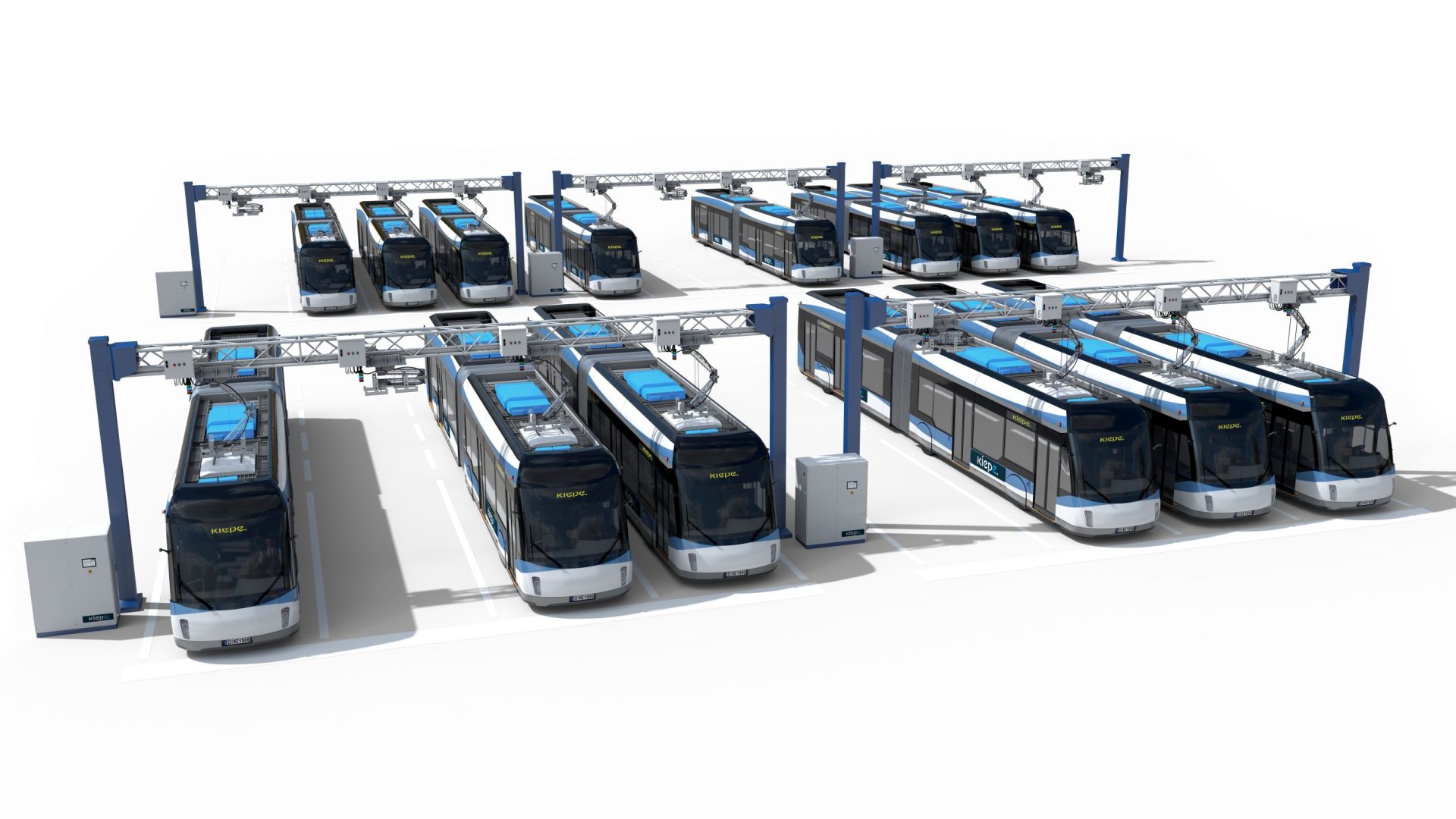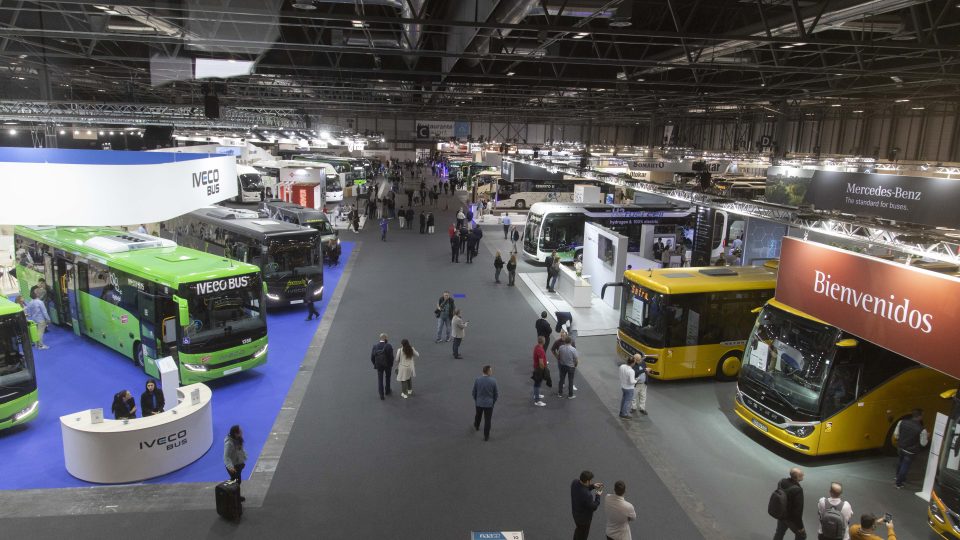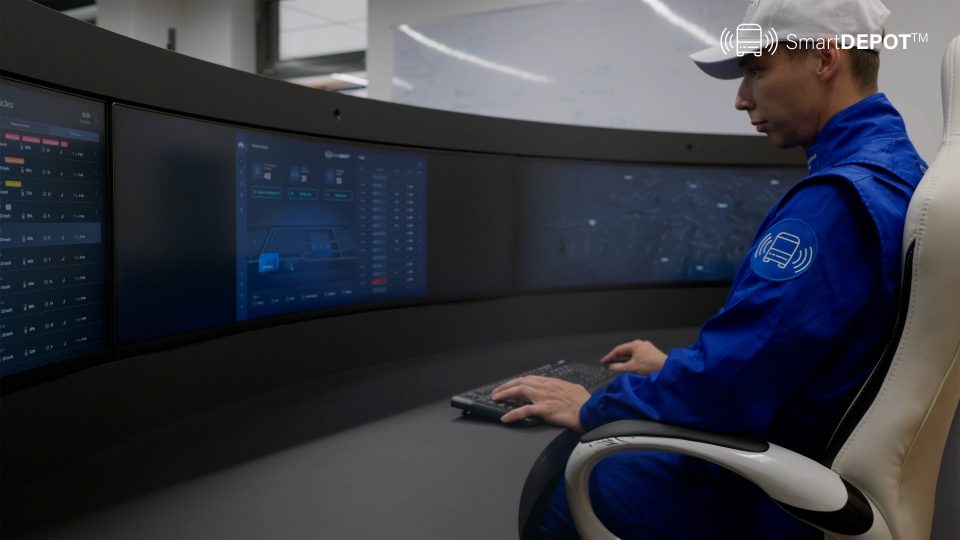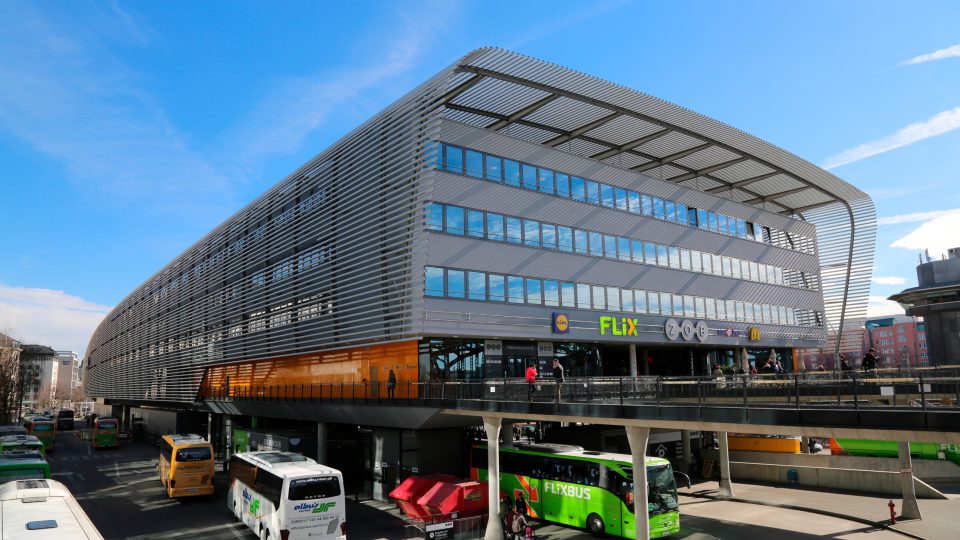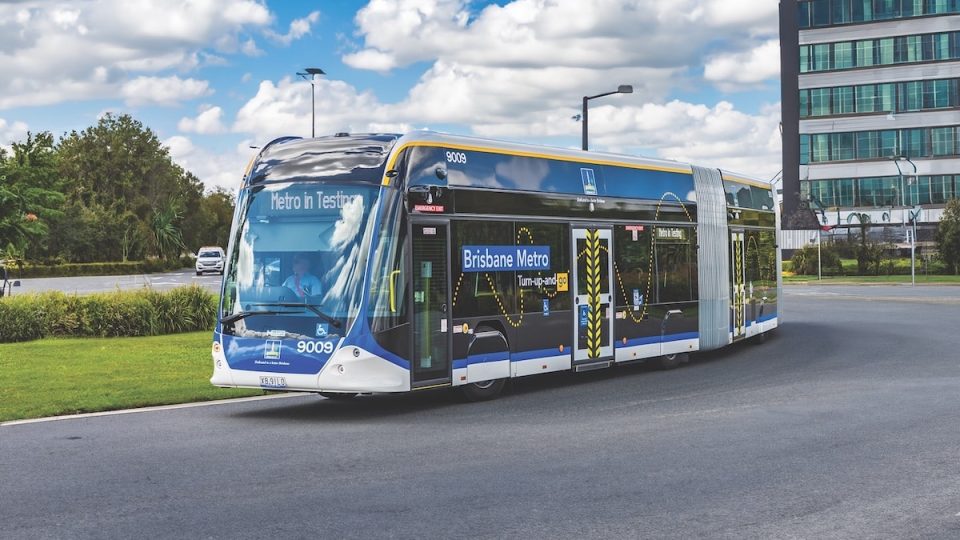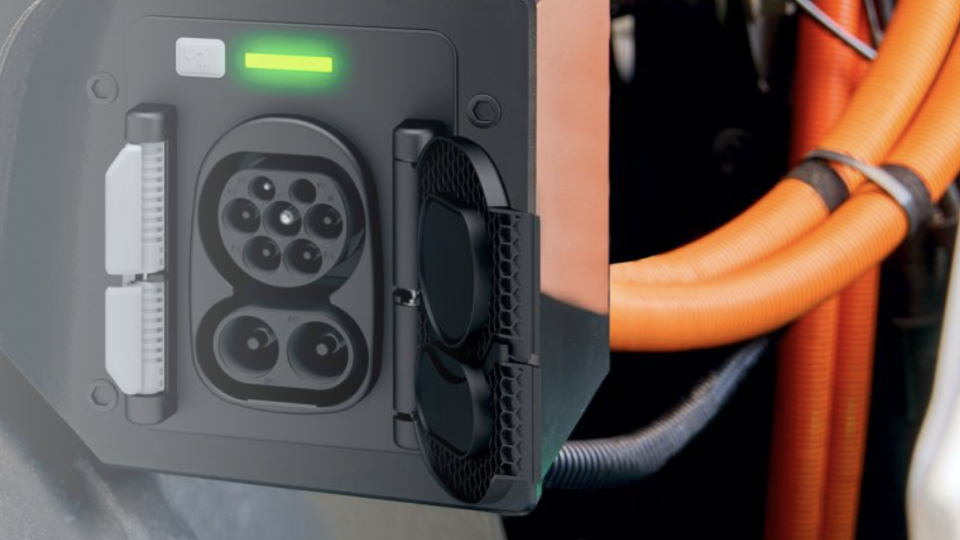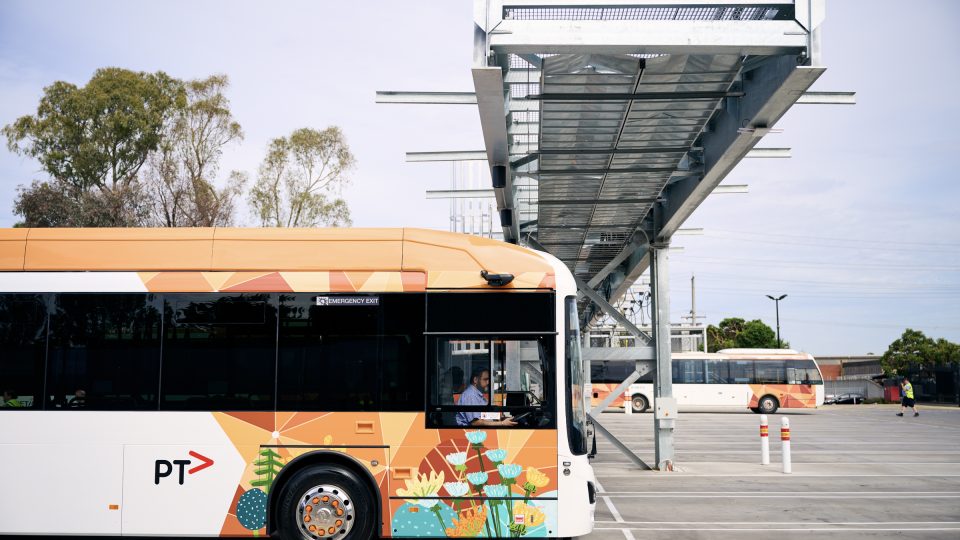KIEPE has a solution to charge e-buses with power supply from overhead public transport lines
Authored and sponsored by KIEPE KIEPE is setting new standards in power supply for public transport companies. By using an existing overhead line from a light rail vehicle (LRV) or trolley bus to supply power, significant synergies can be realized. KIEPE has the right products to install the appropriate charging infrastructure in existing depots or along […]
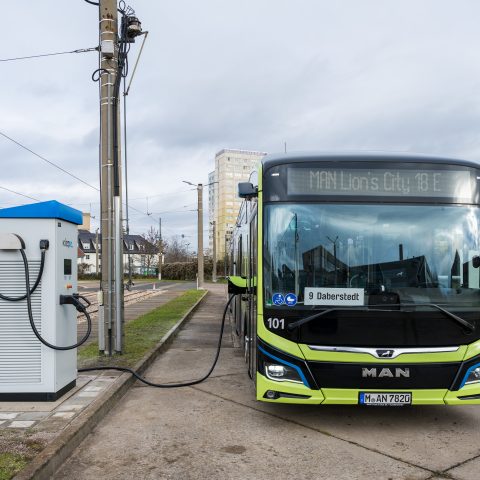
Authored and sponsored by KIEPE
KIEPE is setting new standards in power supply for public transport companies. By using an existing overhead line from a light rail vehicle (LRV) or trolley bus to supply power, significant synergies can be realized.
- Increased efficiency: Optimal use of the existing public transport traction power system reduces strain on the 50-Hz power grid.
- Cost savings: Charging stations can be installed along the overhead line without major excavation work.
- Compliance with German Calibration Standard: Separate measurement of the subsidized rail and charging current ensures correct billing for tax purposes.
KIEPE has the right products to install the appropriate charging infrastructure in existing depots or along the route. Pilot installations of the k.Charger charging systems with utilizing electric power fed from the overhead line have been set up in St. Gallen (Switzerland) and Erfurt (Germany).
The solution for power supply from overhead lines is being implemented in the new Charging Infrastructure business unit.
CLICK HERE FOR MORE INFORMATION
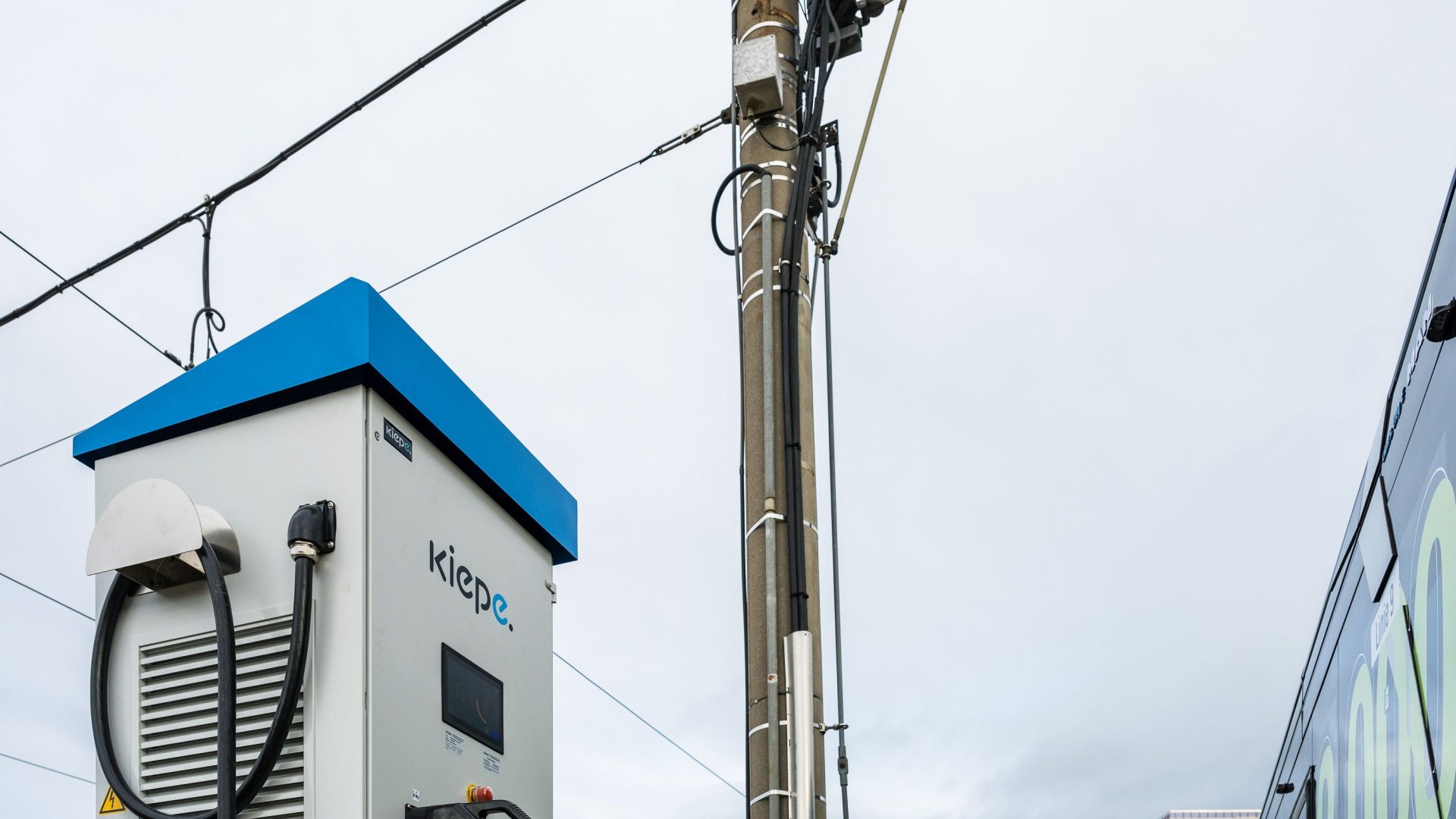
Modular k.Charger infrastructure system
The KIEPE charging infrastructure technology was specially developed to meet the needs of fleet operators in public transport and logistics. With the modular k.Charger system, resource-saving and cost-optimized depot charging infrastructure systems can be implemented.
Additional advantages of the KIEPE charging infrastructure include, but are not limited to:
- Suitability for use near residential areas: Low noise emissions thanks to our innovative water-cooling based system approach.
- Charged and ready-to-use vehicles at the start of the shift: System redundancies, charging management, remote maintenance, and service friendliness thanks to our compact 19” modules.
- Use of existing traction power supply: Connection to 750VDC catenary/overhead line or rectifier station.
The k.Charger charging infrastructure adapts to the demanding conditions of existing bus depots or logistics centers and not the other way around.
According to Sandro Maciocia, Managing Director of KIEPE Electric Switzerland and Head of the Charging Infrastructure business unit, this solution from KIEPE is a logical step: “Our innovative charging infrastructure products incorporate our decades of experience with onboard charging technology for buses and rail vehicles. We focus on technology and quality and make an important contribution to the mobility transition through the sustainable use of resources.”
